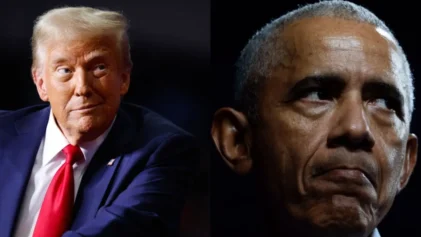Sen. Rand Paul (R-Kentucky) once again showed he’s not afraid of taking on the topic of race, telling a crowd of Berkeley students yesterday that President Obama should be particularly wary of domestic spying, given the government’s history of eavesdropping on civil rights leaders like the Rev. Dr. Martin Luther King Jr.
“I find it ironic that the first African-American president has without compunction allowed this vast exercise of raw power by the NSA,” Paul said in his speech at the University of California, Berkeley. “Certainly J. Edgar Hoover’s illegal spying on Martin Luther King and others in the civil rights movement should give us all pause. Now, if President Obama were here, he would say he’s not J. Edgar Hoover, which is certainly true. But power must be restrained because no one knows who will next hold that power.”
Paul has consistently demonstrated that he’s not afraid of talking about race — even if his comments aren’t warmly received. Last April the likely Republican presidential candidate went to Howard University and presented a questionable version of history to explain why Black people should be flocking to the Republican Party, seeming to expect that the crowd at the historically Black university wouldn’t be aware that the Republicans were the party of Lincoln and switched over to Democratic allegiance during the New Deal and the Great Depression.
Paul didn’t realize that appearing at the nation’s largest HBCU, where students spend years parsing the tiniest details of African-American history, and offering up a tainted, twisted version of Black history in the last century is like walking into the Kremlin and telling the Russians that the Cold War never happened.
At the historically liberal Berkeley campus, Paul told the students he was a defender of the rights they hold dear.
“I believe what you do on a cellphone is none of their damn business,” Paul said in one of the lines that drew the most applause, according to the New York Times.
“The first African-American president ought to be a little more conscious of the fact of what has happened with the abuses of domestic spying,” Paul told Times reporter Jeremy Peters. “Martin Luther King was spied upon, civil rights leaders were spied upon, Muhammad Ali was spied upon, antiwar protesters were spied upon.”
“The possibility for abuse in this is incredible,” the senator added. “So I don’t care if there’s never been any evidence of abuse with the NSA. They should not be collecting the data.”
Paul, who won the presidential straw poll this month at the Conservative Political Action Conference, was clearly trying to woo younger voters who would be leery of the Republican Party. But as Robert B. Reich, the former labor secretary in the Clinton administration who is now a professor of public policy at Berkeley, noted before the speech, Paul was sticking to a safe topic on the Berkeley campus.
“He’s not in the lion’s den. He’s in a playroom of pussycats,” Reich said. “I’d like to see someone ask him about his position on gay rights and abortion.”
But Paul wasn’t asked about those positions, as the moderator selected questions that had been submitted on notecards before the speech.
Paul’s tour of potentially unfriendly crowds could be continuing: he reportedly has been asked to address the NAACP to discuss his proposal for “economic freedom zones” in poor areas.


